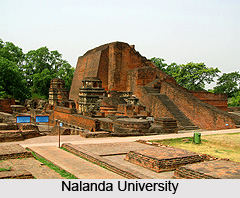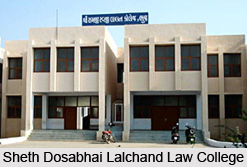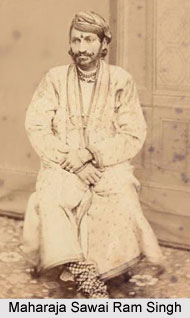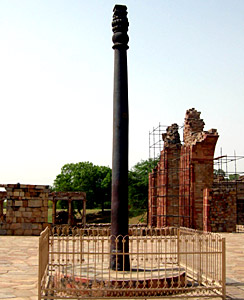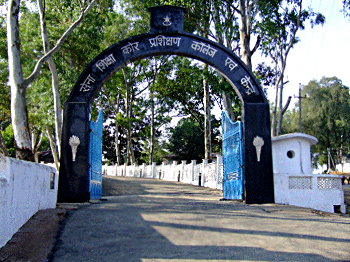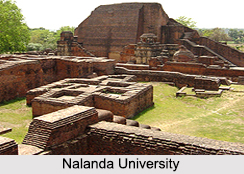 Indian universities are institutions of higher education and research, which are established to grant academic degrees in a variety of subjects. A university is an organization that provides both undergraduate and postgraduate education. Historically, it can be said that the word `university` has been derived from the Latin words `universitas magistrorum et scholarium`, meaning "community of teachers and scholars". In this respect, Indian universities play a vital role in creating enlightened individuals for the society, who can contribute towards the growth of economy. Indian Universities can be classified according to the time period in which they were established. Some of these Indian universities are described below.
Indian universities are institutions of higher education and research, which are established to grant academic degrees in a variety of subjects. A university is an organization that provides both undergraduate and postgraduate education. Historically, it can be said that the word `university` has been derived from the Latin words `universitas magistrorum et scholarium`, meaning "community of teachers and scholars". In this respect, Indian universities play a vital role in creating enlightened individuals for the society, who can contribute towards the growth of economy. Indian Universities can be classified according to the time period in which they were established. Some of these Indian universities are described below.
Ancient Indian Universities
In ancient days, universities of Indian subcontinent were centers of higher learning, where students from all over the world came and gained knowledge on religion, politics and economics.
The oldest known universities in India were special centers of learning. Most of the universities were Buddhist monasteries. Nalanda was established around 450- 1193 CE. Odantapuri in Bihar originated around 550 - 1040 CE. Somapura served as one of the famous universities of the country from the Gupta period to the Muslim conquest.
Medieval Indian Universities
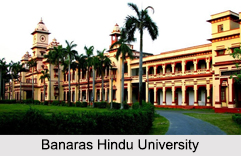 Medieval universities in India were those institutions of higher learning that were established with an aim of introducing subjects such as arts, law, medicine and theology. These universities had evolved from much older schools and monasteries and continue to serve the society. However, with the arrival of the British and creation of various social reforms, establishment of universities commenced, which were provided with an assortment of facilities. At the time, many universities for women also originated in the country.
Medieval universities in India were those institutions of higher learning that were established with an aim of introducing subjects such as arts, law, medicine and theology. These universities had evolved from much older schools and monasteries and continue to serve the society. However, with the arrival of the British and creation of various social reforms, establishment of universities commenced, which were provided with an assortment of facilities. At the time, many universities for women also originated in the country.
Modern Indian Universities
India has developed steadily in the field of education, since Independence. The country possesses both public and private universities and a large number of them are supported by the Government of India and the state governments. There are several Indian universities, which are run by private bodies and societies. Universities in India are classified into various categories such as Central Universities, State Universities, Deemed Universities, Private Universities, Agricultural Universities, National Institutes of Importance and Open Universities. Over time, a number of universities have evolved in different states of India, which serve the country by imparting advanced education in a plethora of streams. As per the rankings for the year 2017, the top five modern Indian universities include Indian Institute of Science (Bengaluru), Jawaharlal Nehru University (New Delhi), Banaras Hindu University (Varanasi), 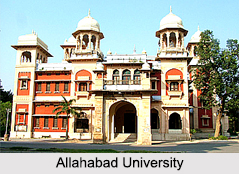 Jawaharlal Nehru Centre for Advanced Scientific Research (Bengaluru) and Jadavpur University (Kolkata). Some of the other modern Indian universities are Allahabad University, Bharath University, Jawaharlal Nehru Agricultural University, Kurukshetra University, Mizoram University, Visva-Bharati University and Bhavnagar University.
Jawaharlal Nehru Centre for Advanced Scientific Research (Bengaluru) and Jadavpur University (Kolkata). Some of the other modern Indian universities are Allahabad University, Bharath University, Jawaharlal Nehru Agricultural University, Kurukshetra University, Mizoram University, Visva-Bharati University and Bhavnagar University.
Management of Indian Universities
Today, universities in India are supported by the University Grants Commission (UGC). This is a body of the central government that provides support to the government-recognized universities and colleges with funds. UGC provides recognition to the universities in India. It conducts National Eligibility Test (NET) for the recruitment of teachers in colleges and universities nationwide. The All India Council for Technical Education (AICTE) is a body involved in the systematic planning and organized development of technical education system in the country. The National Assessment and Accreditation Council (NAAC) is another body that offers recognition to universities. NAAC is an autonomous body, which is funded by the University Grants Commission of the Government of India. It is important to note that the Indian higher education system has been revamped and various professional course curriculums have been introduced.
